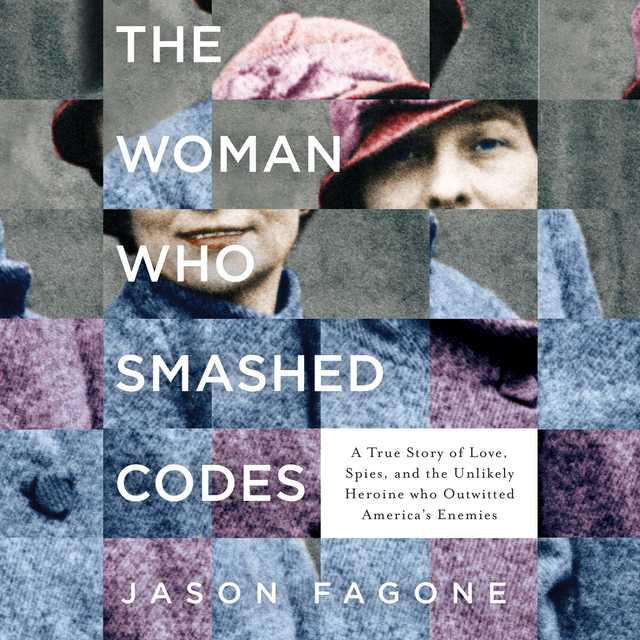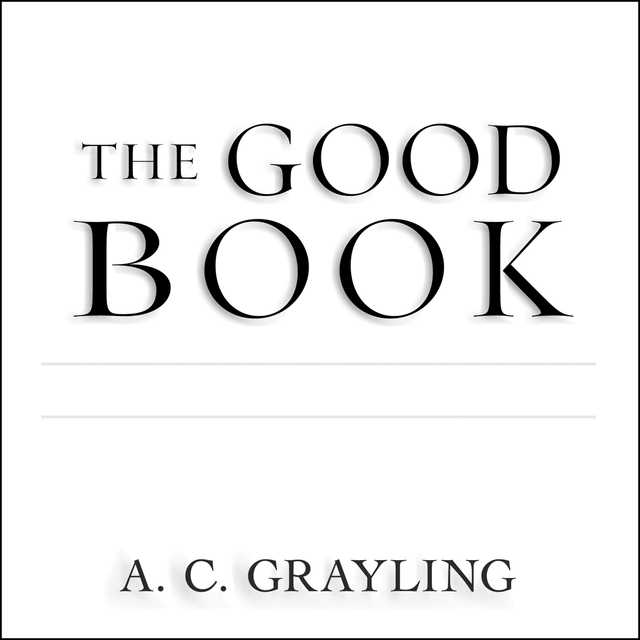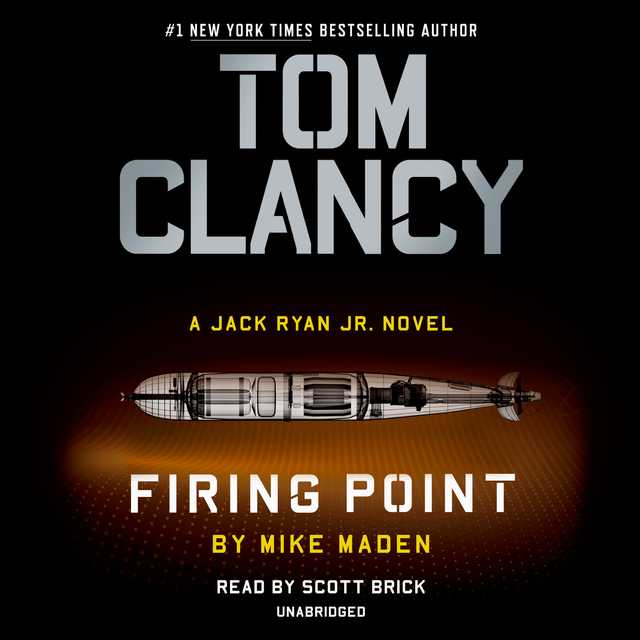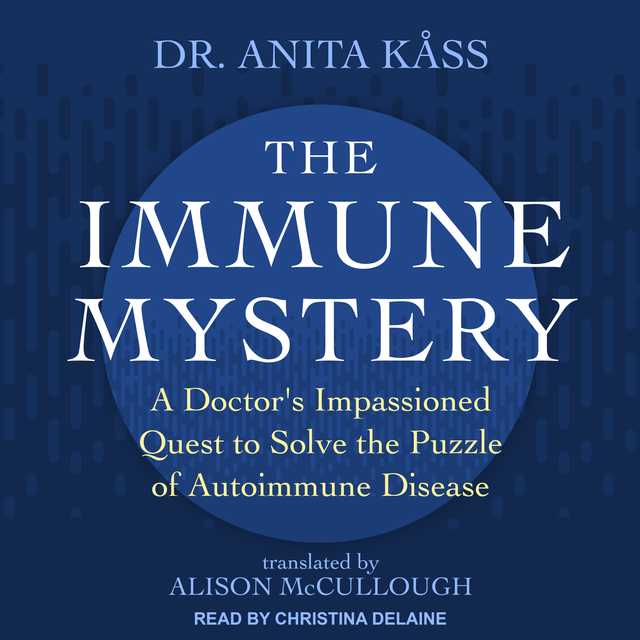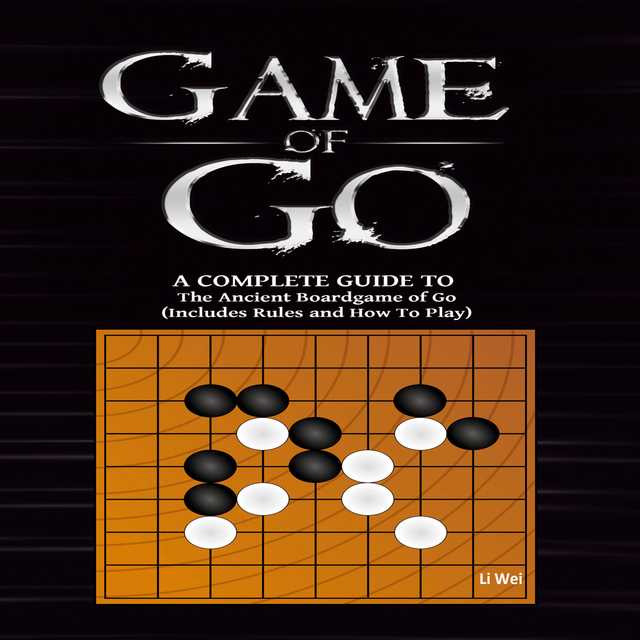The Woman Who Smashed Codes Audiobook Summary
NATIONAL BESTSELLER
NPR Best Book of 2017
“Not all superheroes wear capes, and Elizebeth Smith Friedman should be the subject of a future Wonder Woman movie.”– The New York Times
Joining the ranks of Hidden Figures and In the Garden of Beasts, the incredible true story of the greatest codebreaking duo that ever lived, an American woman and her husband who invented the modern science of cryptology together and used it to confront the evils of their time, solving puzzles that unmasked Nazi spies and helped win World War II.
In 1912, at the height of World War I, brilliant Shakespeare expert Elizebeth Smith went to work for an eccentric tycoon on his estate outside Chicago. The tycoon had close ties to the U.S. government, and he soon asked Elizebeth to apply her language skills to an exciting new venture: code-breaking. There she met the man who would become her husband, groundbreaking cryptologist William Friedman. Though she and Friedman are in many ways the “Adam and Eve” of the NSA, Elizebeth’s story, incredibly, has never been told.
In The Woman Who Smashed Codes, Jason Fagone chronicles the life of this extraordinary woman, who played an integral role in our nation’s history for forty years. After World War I, Smith used her talents to catch gangsters and smugglers during Prohibition, then accepted a covert mission to discover and expose Nazi spy rings that were spreading like wildfire across South America, advancing ever closer to the United States. As World War II raged, Elizabeth fought a highly classified battle of wits against Hitler’s Reich, cracking multiple versions of the Enigma machine used by German spies. Meanwhile, inside an Army vault in Washington, William worked furiously to break Purple, the Japanese version of Enigma–and eventually succeeded, at a terrible cost to his personal life.
Fagone unveils America’s code-breaking history through the prism of Smith’s life, bringing into focus the unforgettable events and colorful personalities that would help shape modern intelligence. Blending the lively pace and compelling detail that are the hallmarks of Erik Larson’s bestsellers with the atmosphere and intensity of The Imitation Game, The Woman Who Smashed Codes is riviting popular history at its finest.
Includes an enhancement PDF.
Other Top Audiobooks
The Woman Who Smashed Codes Audiobook Narrator
Cassandra Campbell is the narrator of The Woman Who Smashed Codes audiobook that was written by Jason Fagone
Jason Fagone is a journalist who covers science, technology, and culture. Named one of the “Ten Young Writers on the Rise” by the Columbia Journalism Review, he works at the San Francisco Chronicle and has written for GQ, Esquire, The Atlantic, the New York Times, Mother Jones, and Philadelphia magazine. Fagone is also the author of Ingenious: A True Story of Invention, the X Prize, and the Race to Revive America and Horsemen of the Esophagus: Competitive Eating and the Big Fat American Dream. He lives in San Francisco, California.
About the Author(s) of The Woman Who Smashed Codes
Jason Fagone is the author of The Woman Who Smashed Codes
More From the Same
- Author : Jason Fagone
- Ingenious
- Publisher : HarperAudio
- Abraham
- American Gods [TV Tie-In]
- Dead Ringer
- House of Sand and Fog
- Prey
The Woman Who Smashed Codes Full Details
| Narrator | Cassandra Campbell |
| Length | 13 hours 36 minutes |
| Author | Jason Fagone |
| Category | |
| Publisher | HarperAudio |
| Release date | September 26, 2017 |
| ISBN | 9780062675583 |
Subjects
The publisher of the The Woman Who Smashed Codes is HarperAudio. includes the following subjects: The BISAC Subject Code is Biography & Autobiography, Historical
Additional info
The publisher of the The Woman Who Smashed Codes is HarperAudio. The imprint is HarperAudio. It is supplied by HarperAudio. The ISBN-13 is 9780062675583.
Global Availability
This book is only available in the United States.
Goodreads Reviews
Charlene
January 16, 2018
Possibly one of the best books I have ever read. Even better than Hidden Figures. Thank you Jason Fagone for bringing Elizebeth Friedman into my life. When I first picked up this title, I thought maybe Fagone found a woman who was impressive, but not necessarily one of the most amazing women to ever live, to make the subject of his new book. It seemed possible that perhaps he was overselling her accomplishments and underselling the recognition she received in the history books, all in an effort to sensationalize his book and boost sales. Indeed the claims he made in his heartfelt introduction about Elizebeth Friedman were fleshed out and brought to life in each stunning chapter of her unbelievable existence. Why should you love this book? Because it was hard enough for women to even force their way into universities that would allow them to get a degree. Even when, against the odds, they received that degree, it was difficult to get a job. If they passed even that hurdle, once children came along, they usually had to leave their jobs to be good mothers. Fathers were "good fathers" if they provided. A woman was a bad mother if she went to work and provided. She had to stay home in order to be considered a good mother. Even if women got the degree, got the job, and survived in that job despite having had children, their accomplishments of a lifelong career could still be discounted. Elizebeth Friedman's life long career involved *creating* the models we use today (and that the FBI used and stole credit for!) and using those cyphers to help win WWI and WWII. Despite her contributions and her lifelong career, she was still be written out of the larger history and men were given credit for her work. I think we are all aware of how unfair the pay has been for women throughout history. Hell it's still unfair. Yet, I had no idea how unfair it really was. This book makes the pay disparity crystal clear. It was rough being a woman. Just think back to Marie Curie. Why was she able to make a name for herself in science when so few women had that chance? Why did women like Mileva Maric, who were smart, get relegated to wiping poop off baby butts instead of engaging with the wider world? The women like Curie and Elizebeth Friedman had what Virginia Wolf called "A Room of Their Own." The men in their lives valued them enough to free them from being only a mother or housekeeper. The men in their lives supported their efforts to use their brilliant minds and engage with hard problems the world needed solved. Other men, like Maric's husband Albert Einstein (who I love despite my criticism) focused on their own careers and had zero problem making the raising of babies (that they helped create) the mother's problem. They did nothing to ensure equality or give support to the women they claimed to love. Someone had to raise the kids and by God, it sure wasn't going to be them. Elizebeth's mind was nothing short of genius and her husband William knew it. While I generally dislike romance novels because they seem unrealistic and are usually aimed at women who need an escape because their lives are unfulfilled, this is my kind of romance novel! It reads nothing like an actual romance novel (Outlander, Fabio type books), but I am in love with the relationship of William and Elizebeth Friedman. They are my new all time favorite couple. Fagone draws on diaries, letters, and other documents from WWI and WWII to uncover the role Elizebeth Friedman played in the development of cryptography as a science, in catching pirates (so good), in teaching cryptography to special intelligence agencies like the FBI and CIA, and in breaking the codes that helped win WWI and WWII. He used those documents to present a biography of her whole life, both professional and personal to paint a picture unlike any I have yet read. You will get to know Elizebeth's quirky nature that resulted in her being very annoyed when people didn't use the right words. She hated politers, people who used pleasing words to soften what they really meant. A friend was not indisposed at a party. They were drunk off their ass and you should just say so. A loved one did not just pass away. They died. Accept it and own it. When you have a husband who gives you his heart and soul and it translates into some pretty good sex, you should accurately call him your "lover husband." What a character! I am not sure what was more interesting to me, her incredible brain and the work she did that ended up being a significant contribution to society, as well as our American society's very survival, or the fact that she did it while caring for her husband William, who was brilliant in his own right (and oh so loving- can I go back in time and hook up with William, please!!??), but who had some significant mental health challenges, namely major debilitating depression. I have to relate some of their more loving and sweet moments as a couple taking on the world together:While in the presence of another colleague, William was captivated by her, he could not help but rip off a scrap of paper and secretly scribbled a note to her. When their colleague was not looking, he passed her the note which read, " I am studying your features, you are perfectly beautiful. " She quickly tucked the note away in her pocket and later stuck it between the pages of her diary on the page she used to write about how she felt about this wonderful gesture. He told her almost daily how brilliant and beautiful she was and called her, "Dearest Woman in the Universe." Before they had children, he told her he knew he didn't make very much money working for the army as a code breaker, but he would work very hard to make sure he could hire someone to help look after the kids and take care of the house so she could be free to use her brilliant brain and write books or do something intellectually minded that would be deeply satisfying (this is a Room of One's Own). The descriptions of his earnest wish for her to have this type of life was so beautiful, it actually made me cry. Just wonderful. He told her that home is not a place where the wife cleans and the man comes home from work to be served. Rather, home is a place where two hearts beat in unison. And she should be spending her time with her intellectual pursuits so that there are two hearts can be in unison. At this point in their lives, the electron was just beginning to be understood and, in a letter, he asked her if she knew what an electron was and how incomprehensibly small it was. He told her that as incomprehensibly small is that electron is his love for her is in comprehensibly large. He worried most days that he wasn't enough for her. He was filled with as much insecurity as he was love. He told Elizebeth that *every* accomplishment he made was only because she was with him because he truly believed that without her, he could not function as a whole human being. Reading about him and his mental health issues, this seems to have been very true. This gives new meaning to the phrase, "You complete me."Elizebeth's work life was far more challenging that her romantic life.Though she and William had equal intelligence (many argue hers was superior and I tend to agree), and even though they had both been equally involved in creating cyphers to break codes, and were both equally good at breaking codes (she surpassed him in this ability by all accounts), it was only William who was asked to move to France to help his country decipher messages in WWI. Up to that point, Elizebeth had done just as much decoding for the war effort and was one of a hand full of people *in the world* who had the skills to break the codes that could keep our United States from being attacked. And yet, she *still* was not allowed to serve her country. She wrote to the Army to challenge their decision and informed them that she had the expertise and would very much like to serve her country. They replied that since she was a woman, it was simply out of the question. She was infuriated. Reading that, I could not help but be infuriated too. William's name would be the one who ended up on all the papers and in all the history books. He was the one who received the praise back then. Through it all, he worked hard to get people to understand that she was equally brilliant and made sure to tell her that all the time.Having no luck convincing the Army that she was more than fit to serve her country as a codebreaker, she was hired by the Coast Guard to bust pirates who were smuggling goods. What a job! What an experience! I believe this moves her from the status of being a significant figure in history to being a legend! Little did she or anyone else realize that her taking the job to catch pirates would lead to her biggest successes in her entire career. Because she was in the Coast Guard, and because she was their top codebreaker (in truth one of the top codebreakers in the entire world), and because they had the best technology at the time, Elizebeth became possibly the most valuable codebreaker in WWII and certainly contributed as much as Alan Turing to win the war and save American and British lives. She did all of this as Hoover claimed credit, credit for the lives saved, credit for the creation of *her* codebreaking models, and credit for the ability to break codes (which was only possible if they used her models).One of the best characters in the book is Fabian. If he were not a real person in history, you would think he was too far-fetched a character to make up. I am now compelled to see if there is a biography of his crazy life. I highly recommend this book and would even classify it as essential reading. If you don't read it, you are really missing out on one of the best biographies of any person who has ever lived. A++
Jean
November 20, 2017
I recently read “Code Girls” by Liza Mundy. This book “The Woman Who Smashed Codes” makes a nice addition or compliment to the storyline. Elizabeth Smith Friedman is the subject of this book. Mundy also mentioned Elizabeth’s husband, William F. Friedman, and deemed them to be an important team of cryptologists. William F. Friedman was famous in World War Two for breaking Purple, the Japanese cipher machine.Elizabeth Smith was a college educated teacher who was recruited by George Fabyan to work in his Riverbank Laboratory in 1910. She was hired to work on secret codes. She went on to play a key role in the development of cryptoanalysis in the USA. She met William Friedman at the Riverbank Labs and soon they were married and working together decoding messages for the government during World War One. Between the wars and during prohibition, Elizabeth broke the codes of the smugglers for the Coast Guard and other divisions of the Department of the Treasury. She frequently testified in court. During World War Two Elizabeth worked on decoding messages from spy rings in the North and South America for the Coast Guard. J. Edgar Hoover asked her to set up the Cryptology Division of the FBI. The book is well written and meticulously researched. At times the book reads more like a spy novel than a biography. Apparently, J. Edgar Hoover took credit for a lot of the work done by Elizabeth. This is another in a series of books about women’s little-known role in science and government work during both wars.I read this as an audiobook downloaded from Audible. The book is thirteen and a half hours long. Cassandra Campbell does an excellent job narrating the book. Campbell is an actress and voice-over artist as well as an award- winning audiobook narrator. Campbell won the 2011 Audie Award. She also was the Best Voice in fiction for 2009 and 2010. She was Best Voice in Children’s literature for 2009. Audible just announced Campbell as a 2017 inductee in the Audible Narrator Hall of Fame.
Patrick
November 09, 2017
This was fantastic, and I'm not surprised. Fagone is a great writer (check out his previous book Ingenious: A True Story of Invention, Automotive Daring, and the Race to Revive America), and here he has great subject matter to work with. This book tells the story of Elizabeth Friedman, a pioneer in the field of cryptanalysis (that's codebreaking to us civilians), and one of the great unsung heroes of the 20th Century. Friedman's story has all the stuff you want in a great history -- wingbat theories about Shakespeare, gangster rumrunners, Nazi spies, and a trip to Hitler's mountaintop lair. And any book that opens its section about WWII with a Fugazi quote is ok by me. I haven't read many history/biographies, but I can't say I've read one that moves quite as well as this. Highly recommended for anyone interested in espionage, codebreaking, WWII, or Prohibition. If I hadn't been trying to read this during the baseball postseason I would have finished it in a day.
Mal
November 29, 2017
When Richard Nixon asked Chou En-Lai in 1972 about the impact of the French Revolution, the Chinese Premier famously said, "It's too early to tell." That terse response is generally understood to illustrate the Chinese ability to take the long view of history. But it might be more accurate to regard it as reflecting the constraints on those who write history. Historians can only work with available records: there is no history without documentary evidence. And sometimes decades, even centuries pass before the most crucial evidence comes to light.In fact, ironically, the exchange between Nixon and Chou reflects a misunderstanding that drives the point home even more strongly: they were both referring to the events of 1968, not 1789. Only now, much later, once a diplomat present at the scene clarified the exchange, can historians accurately interpret what the two men meant.There are few areas in which the unavailability of documentary evidence has been more telling than in the history of espionage in the 20th century. Only in recent years have the archives of the CIA, the KGB, MI6, the NSA, and other leading intelligence agencies opened widely enough for us to understand what really took place in the world of espionage in World War II and the Cold War. (Doubtless, some explosive documents are still locked away and won't surface until later in this century, if ever.) And there is no more dramatic example of how what has passed for history has misled us than what we have been taught about the FBI's role in counterespionage in the 1920s and 30s (combating rumrunners and smugglers) and in the 1940s (catching Nazi spies).Working with recently declassified files from the World War II era as well as long-ignored archival records and contemporary press reports and interviews, journalist Jason Fagone has brought to light at last the astonishing story of Elizebeth Smith Friedman and her husband, William Friedman. (Yes, her first name is spelled with three e's.) As Fagone shows in his beautifully written story of this surpassingly brilliant couple, The Woman Who Smashed Codes: A True Story of Love, Spies, and the Unlikely Heroine Who Outwitted America's Enemies, the Friedmans may well have been the most important 20th-century American codebreakers, and quite possibly the best and most successful in the world.William Friedman is celebrated in cryptology circles as the man who broke the Japanese military code called Purple. "MAGIC became the top-secret moniker for these Japanese decryptions . . . MAGIC led directly to bombs falling on imperial ships at Midway," the turning point of the war in the Pacific.Fagone notes, "Today historians of cryptology believe that in terms of sheer, sweaty brilliance, the breaking of Purple is a feat on par with Alan Turing's epiphanies about how to organize successful attacks on German Enigma codes." However, independently, before the US and Britain's Bletchley Park were collaborating on the effort, Elizebeth Friedman broke not one but three different types of Enigma machines. Fagone makes abundantly clear that the two were at least equal in ability. In fact Elizebeth may have been just a bit smarter. (William always insisted she was.)"William Friedman is . . . widely considered to be the father of the National Security Agency," Fagone writes. But both he and Elizebeth came to loathe the practices of the agency not long after its formation in 1952. It's very likely they would be scandalized by the indiscriminate collection of information about civilians by today's NSA.As Fagone notes, "Elizebeth and William Friedman unscrambled thousands of messages spanning two world wars, prying loose secrets about smuggling networks, gangsters, organized crime, foreign armies, and fascism. They also invented new techniques that transformed the science of secret writing, known as cryptology." Although today Elizebeth isn't nearly as famous as her husband, that was by no means always the case. During the 1930s, she become a celebrity for her work against rumrunners and other smugglers and gangsters during the Depression. The public attention halted when she was enlisted by the Coast Guard for a top-secret effort to identify the extensive Nazi spy network in South America—work at which she and her team were extraordinarily successful. Their efforts led to the dismantling of the Nazi network well before the end of the war. However, J. Edgar Hoover claimed the success for the FBI, ignoring their efforts, and he was able to get away with it because he had become so powerful. "It's not quite true that history is written by the winners," Fagone writes. "It's written by the best publicists on the winning team."The Woman Who Smashed Codes is an astonishing story that simply has to be read to be believed. His principal subject, Elizebeth Friedman, was an extraordinary woman he refers to more than once as a genius. (The evidence is there.) And Fagone writes the tale with often-elegant, metaphorical prose. He calls the book a love story, but it is of course far more than thatThe same declassification of secret files that allowed Jason Fagone to write The Woman Who Smashed Codes has led to the publication of several other recent books about women in espionage. The most prominent of these was Code Girls: The Untold Story of the American Women Code Breakers of World War II by Liza Mundy.
Deacon Tom
October 28, 2020
A Great ReadOutstanding book! This is the story of a great woman and a great couple. I would like to see it as a movie one day or at least a PBS documentaryI truly enjoyed this book up in many ways it was more in depth than amateur Codebreakers would understand. Yet, the author took the time to give detail so that those who were more professional in the area would be comfortable as well. Also he has a way of making the book flow nicely in the midst of detail
Rick
September 29, 2017
Immediately added to my favorites shelf. I cannot recommend this book highly enough.The Woman Who Smashed Codes will be compared with Hidden Figures, and that's fair, to a point. Both books have at their core a story of remarkable scientific/mathematic achievement, overlooked because of gender, largely forgotten (until now) as others took credit. But it is so much more, so rich in its account of not only an extraordinary woman, but the time in which she lived, two World Wars and her central role in both, the incredible marriage that gave birth to modern American cryptanalysis, that I think it deserves to be evaluated on its own.Even in the hands of a merely serviceable writer, it would be an enjoyable read. But Fagone elevates the story, weaving it into as rich a tapestry as you could hope for. Secondary characters jump from the page just as much as Elizebeth and her husband William; little details transport you to the small, smoke-filled rooms where Elizebeth and her tiny team toiled in obscurity in defense of the country. Fagone firmly establishes Elizebeth Friedman's place in our history, and not only gives her her due, but demands that we reevaluate what we thought we knew about the wars, and the origins of America's intelligence services (nearly all of them have her fingerprints on them), and the people who are given credit for critical milestones in the country's history.This is a magnificent, memorable, important book.
L
November 08, 2017
Frequently slow, but the topic of a woman’s skills in solving mysteries involving codes or cryptic messages is fascinating.
"Avonna
June 24, 2021
Check out all of my reviews at: https://www.avonnalovesgenres.comTHE WOMAN WHO SMASHED CODES: A True Story of Love, Spies, and the Unlikely Heroine Who Outwitted America’s Enemies by Jason Fagone is a historical fiction novel which brings to light the major contributions of the amazing female half of a married couple who both invented many aspects of the modern science of cryptology. Elizebeth Smith wanted a job in literature. She is hired by an eccentric millionaire who brings the best minds of 1916 together on a large farm outside of Chicago and tells them to be the best they can be. Elizebeth becomes disillusioned with the project she was hired to work on, but she is intrigued with the young man, William Freidman she meets who is helping with the project. The two get married and begin working together on breaking coded messages that are brought to them from various government and law enforcement agencies. They soon build a reputation and are instrumental in building the strategic texts for codebreaking that they and others use throughout WWI, Prohibition and WWII while William is in the Army and Elizebeth works for the Coast Guard. While history hails William’s accomplishments of being a groundbreaker and innovator in cryptology and at breaking the Japanese version of Enigma, there is little praise given to Elizebeth’s own contributions from breaking Prohibition gangsters’ codes to breaking the Enigma code German spies all over South America where using.This book brings Elizebeth’s accomplishments and contributions to light. Mr. Fagone brings Elizebeth to life from her professional publications and personal writings. I was truly amazed by how her and her husband’s brains worked to decode so many secret code systems without using mathematics or having the use of the just being invented computer. The only problem I had with the book was the inclusion of some codes that were used and/or broken by the duo because while I know some would work to solve the puzzles, it just interrupted the flow of the story for me. Otherwise, Elizebeth’s personality comes alive in this story and her story just leads you to wonder how many other brilliant women have been overlooked by history. I recommend this historical fiction of a brilliant mind and woman!
Frequently asked questions
Listening to audiobooks not only easy, it is also very convenient. You can listen to audiobooks on almost every device. From your laptop to your smart phone or even a smart speaker like Apple HomePod or even Alexa. Here’s how you can get started listening to audiobooks.
- 1. Download your favorite audiobook app such as Speechify.
- 2. Sign up for an account.
- 3. Browse the library for the best audiobooks and select the first one for free
- 4. Download the audiobook file to your device
- 5. Open the Speechify audiobook app and select the audiobook you want to listen to.
- 6. Adjust the playback speed and other settings to your preference.
- 7. Press play and enjoy!
While you can listen to the bestsellers on almost any device, and preferences may vary, generally smart phones are offer the most convenience factor. You could be working out, grocery shopping, or even watching your dog in the dog park on a Saturday morning.
However, most audiobook apps work across multiple devices so you can pick up that riveting new Stephen King book you started at the dog park, back on your laptop when you get back home.
Speechify is one of the best apps for audiobooks. The pricing structure is the most competitive in the market and the app is easy to use. It features the best sellers and award winning authors. Listen to your favorite books or discover new ones and listen to real voice actors read to you. Getting started is easy, the first book is free.
Research showcasing the brain health benefits of reading on a regular basis is wide-ranging and undeniable. However, research comparing the benefits of reading vs listening is much more sparse. According to professor of psychology and author Dr. Kristen Willeumier, though, there is good reason to believe that the reading experience provided by audiobooks offers many of the same brain benefits as reading a physical book.
Audiobooks are recordings of books that are read aloud by a professional voice actor. The recordings are typically available for purchase and download in digital formats such as MP3, WMA, or AAC. They can also be streamed from online services like Speechify, Audible, AppleBooks, or Spotify.
You simply download the app onto your smart phone, create your account, and in Speechify, you can choose your first book, from our vast library of best-sellers and classics, to read for free.
Audiobooks, like real books can add up over time. Here’s where you can listen to audiobooks for free. Speechify let’s you read your first best seller for free. Apart from that, we have a vast selection of free audiobooks that you can enjoy. Get the same rich experience no matter if the book was free or not.
It depends. Yes, there are free audiobooks and paid audiobooks. Speechify offers a blend of both!
It varies. The easiest way depends on a few things. The app and service you use, which device, and platform. Speechify is the easiest way to listen to audiobooks. Downloading the app is quick. It is not a large app and does not eat up space on your iPhone or Android device.
Listening to audiobooks on your smart phone, with Speechify, is the easiest way to listen to audiobooks.

